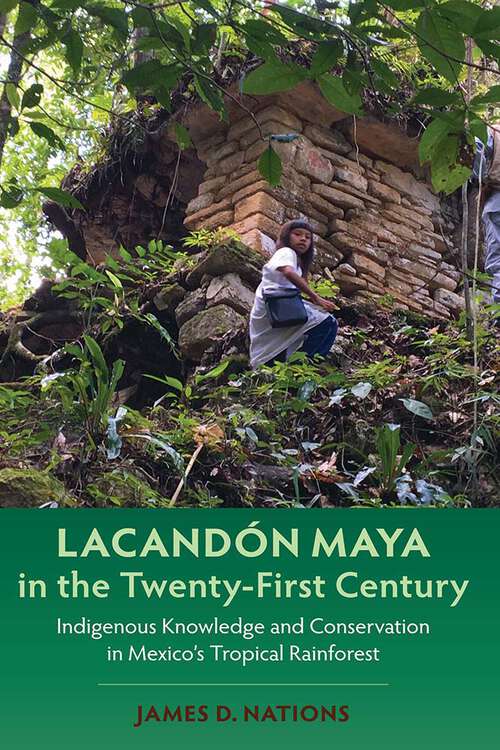
Lacandón Maya in the Twenty-First Century: Indigenous Knowledge and Conservation in Mexico's Tropical Rainforest (Maya Studies)
Environment, General non-fiction
Synthetic audio, Automated braille
Summary
From the ancient traditions of the Lacandón Maya comes an Indigenous model for a sustainable future Having lived for centuries isolated within Mexico’s largest remaining tropical rainforest, the Indigenous Lacandón Maya now live at the nexus of two worlds—ancient… and modern. While previous research has focused on documenting Lacandón oral traditions and religious practices in order to preserve them, this book tells the story of how Lacandón families have adapted to the contemporary world while applying their ancestral knowledge to create an ecologically sustainable future. Drawing on his 49 years of studying and learning from the Lacandón Maya, James Nations discusses how in the midst of external pressures such as technological changes, missionary influences, and logging ventures, Lacandón communities are building an economic system of agroforestry and ecotourism that produces income for their families while protecting biodiversity and cultural resources. Nations describes methods they use to plant and harvest without harming the forest, illustrating that despite drastic changes in lifestyle, respect for the environment continues to connect Lacandón families across generations. By helping with these tasks and inheriting the fables and myths that reinforce this worldview, Lacandón children continue to learn about the plants, animals, and spiritual deities that coexist in their land. Indigenous peoples such as the Lacandón Maya control one-third of the intact forest landscapes left on Earth, and Indigenous knowledge and practices are increasingly recognized as key elements in the survival of the planet’s biological diversity. The story of the Lacandón Maya serves as a model for Indigenous-controlled environmental conservation, and it will inform anyone interested in supporting sustainable Indigenous futures. A volume in the series Maya Studies, edited by Diane Z. Chase and Arlen F. Chase